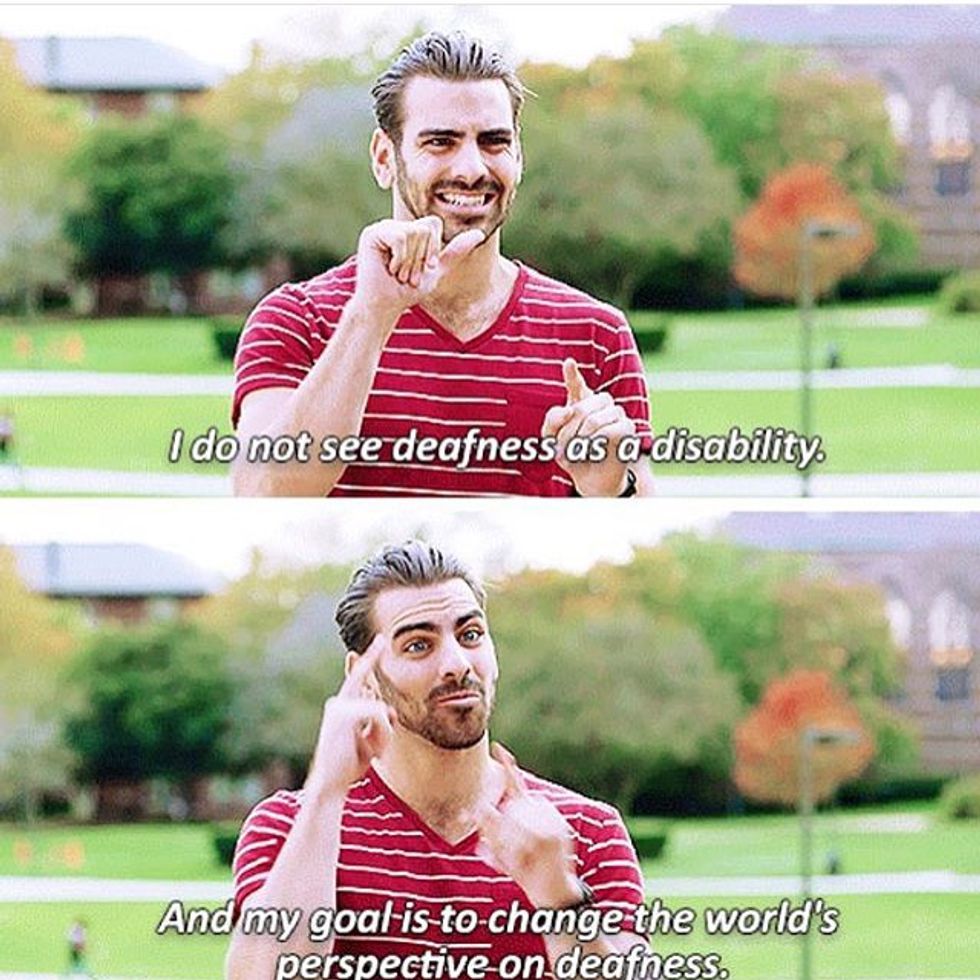ASL, for those of you who may not know, stands for American Sign Language, and yes, there are different versions of Sign Language depending on the country you are in. I have fond memories that include Sign Language, so I may be biased when I say we should all learn Sign Language, but nevertheless, I see only positives in this goal. Although I am hearing, I realize the benefits of learning Sign Language, so I wanted to share with you! Here are some specific reasons why we should all learn Sign Language.
Learning ASL could help people who are deaf and people who are hard of hearing.
With some simple googling, I have found that about 2 or 3 people out of 1,000 are deaf, about 100,000 are considered hard of hearing and close to 1,000,000 are “functionally deaf”. This may not seem like a lot of people compared to people who speak Spanish or Mandarin, so I realize that the same could be said about these languages. I also realize that not every deaf person or person who is hard of hearing uses Sign Language. However, I still believe that it would lighten the hardships of communication for Deaf, hard of hearing and hearing people alike. Sign Language should not be any less important than other languages. Inclusiveness and diversity must be encouraged!
Sign Language is beneficial for those with disabilities
My mom was a teacher’s aide for children with autism, so from a young age, I was exposed to individuals who do not communicate exactly the way I do. This opened my eyes to how Sign Language can and does help those who are not even deaf or hard of hearing. Along with other tools to aid in communication with students, signing can help in classrooms and at home when verbally speaking becomes tiring.
The elderly could benefit
Have you ever had a conversation with your grandparents or an older person and you had to repeat yourself or basically yell for them to understand you? I think we have all had this happen. I am not suggesting that older people should learn this whole new language just so others don’t have to speak up for them. Knowing some basic signs could alleviate some of the frustration that probably comes with miscommunication. I also understand that moving their fingers and arms for the signs may be more difficult for some, more than others, but it could help more than it would harm to have the knowledge ready.
Late bloomers
Babies and toddlers develop at different times. Learning to speak or actually speaking may take place later for some children than others. My cousin’s daughter used to be quite shy and didn’t talk at the point when other children her age started talking. Her family taught her some signs to help her communicate her needs, wants and interests. Sign Language is the platform where a child can express themselves in a way that is comfortable for them. Sometimes Sign Language allows them to communicate even before they can vocalize words.
Learning another language improves cognition
The more you push yourself to learn new skills, the more you grow as an individual. Learning another language teaches you concentration and discipline. Learning a second language is said to push back dementia up to four years later than those that only know one language. Learning another language expands your understanding of other cultures and empathy.
Private conversations
Have you ever been in a bar and you can’t even ask the bartender for a water because it is so loud? This happened to me the other weekend and I found myself signing “water”, but I still ended up having to scream it. Imagine how much more smoothly that interaction could have gone if we were all taught the basics, or imagine the opposite situation when it’s very quiet. My boyfriend and I have experienced this and signed “I love you”, “I’m proud of you” and “you’re cute” to each other. Whether out of necessity or not, signing to a friend or a partner can be very personal and intimate, making the message feel that much more meaningful.
I wish the positive experiences that I have had learning ASL to everyone! This summer I am taking an ASL class at my community college because ISU does not offer Sign Language as a language credit unless your major or minor is Special Education. Sign Language should be introduced more frequently so we all can better understand and include our fellow man. I implore you, do what I wish I had the time to do - demand our schools and community programs include Sign Language as an equal language!




















